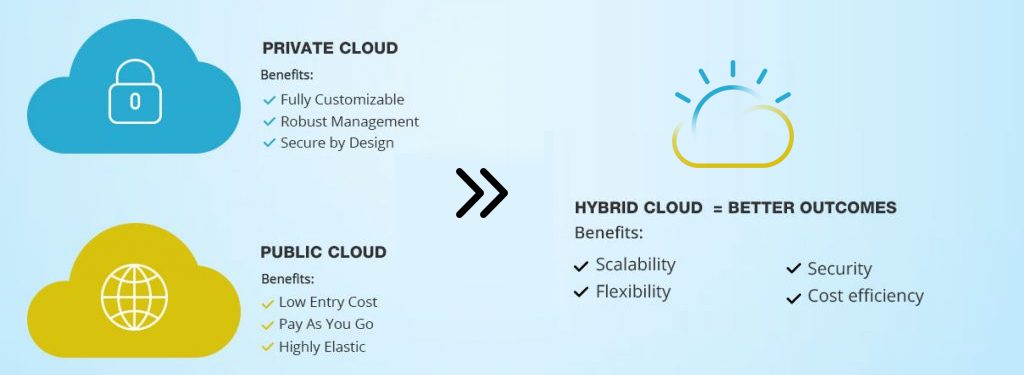
The cloud serves to be one of the quickest and most rapidly growing options for deployment for enterprises all across the globe. With a recent surge towards the development of highly intelligent enterprises, there has been a rapid increase in the number of businesses that are moving to the cloud for effective management of IT-based cloud computing resources.
Businesses that focus on analytics look forward to leveraging the cloud platform to improve the overall efficiency of the respective analytics processes while developing new advanced capabilities. As such, over time, the cloud has emerged to serve as the best possible source of ensuring effective data management.
While cloud computing services are vital to ensuring the overall success of your database management system, their overall sustainability does not imply that you should jump at its notion without doing proper research. You must be aware of the common challenges that you are required to undertake before ensuring the migration.
One of the biggest opportunities while migrating to the cloud is ensuring future readiness. The digital future that we aspire for is possible only with the effective implementation of a hybrid cloud strategy that aims at sufficing for ensure seamless data management. With the demands and needs of the modern business world being significantly different from the past, it is imperative to ensure that you are well-prepared for the same.
Cloud –an Innovative Tool for Accelerating Business Goals
The advent of greater reliability on advanced analytics implies that the respective business goals are also changing over time. With the overall change in business goals, it only becomes sensible for us to modify the way we wish to progress towards achieving the respective objectives. The hybrid variant of cloud computing solutions helps in integrating all the business processes together for achieving seamless progression towards the desired business objectives.
In the present scenario, every business out there wishes to be future-ready. The hybrid cloud is capable of delivering the same with the help of:
- Saving costs for your organization through advanced automation
- Increasing the overall agility or pace at which you are working
- Ensuring improved security
- Improving the overall compliance
- Improving the way in which data is controlled within the organization
- Ensuring data portability across major development
Types of Hybrid Cloud Computing Solutions
As we expect businesses to be aware of the common types of cloud services before migration, here are some of the major types that you should know about.
- On-premise: It serves to be a physical, on-site server that is present within the organization’s premise that ensures management as well as upkeep of the company. This might end up being an immensely expensive solution for your organization. Moreover, there is restricted access for companies in this aspect. The main benefit offered by the on-premise solution is that you are still able to manage ample control over the entire data security.
- Hybrid: The hybrid cloud platform is known to combine private, public, and on-premise cloud platforms that aim at supporting workload mobility as computing requirements keep evolving. In simpler words, it can be said that a hybrid cloud makes use of the best cloud solutions to deliver the best outcomes for your business. Organizations that make use of this cloud platform experience multiple benefits as they are provided with improved security and advanced cloud agility. Additionally, the companies receive versatility, cost-effectiveness, and scalability of cloud solutions.
- Multi: The multi-cloud setup is the system in which the clients make use of more than a single platform from various cloud service providers in a single varied architecture. In comparison to the hybrid cloud, which is known to rely on multiple deployment models, the multi-cloud platform is known to make use of multiple cloud solutions. These cloud-based platforms are known to provide multiple solutions for various workloads.
Conclusion
Whether you are a startup or an enterprise, you should analyze various factors before choosing the cloud platforms:
- Startup: You should figure out the specific capabilities that you want out of cloud services for your startup business.
- Enterprise: Enterprises are mostly known to start AI initiatives (through AI app development) using the cloud platform. This stands especially true when the organization is required the change the policies quite frequently.
Make the most of the cloud-based platforms for your organization.
If you would like to have more understanding of the topic or get your own cloud-based application built get in touch with the experts at software development company and lead your endeavor in the right direction.
Author Bio
Abhinav Chatterji is part of the Content Marketing team at Appinop Technologies. With a fine ability to craft writing pieces that present unique and fresher thought perspectives on different technology and business innovation factors, he creates content that connects with users. His deep-researched theories and valuable insights on industry-wide topics illustrate his accomplished writing portfolio. Product reviews, cost factor analysis, subject reasoning, and dissecting technologies are his power-traits.